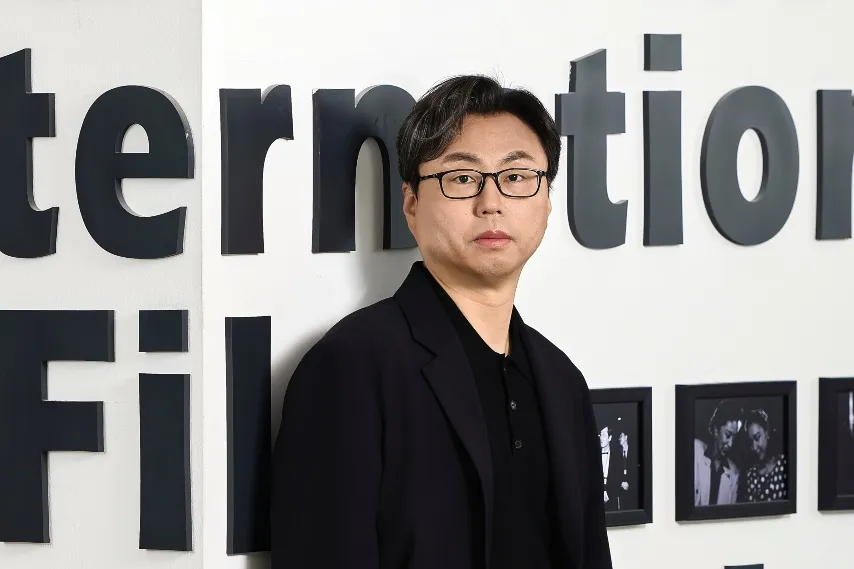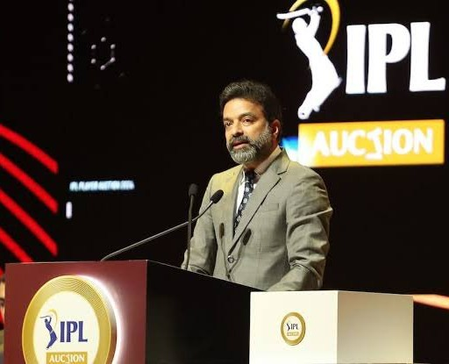
South Korea’s Busan International Film Festival (BIFF, September 17-26) is undergoing some major changes this year, a special anniversary marking 30 years since its debut edition in the early days of Korea’s modern film industry in 1996.
In addition to increasing the number of overall titles and screening venues, the festival is introducing a fully-fledged competition section for the first time; expanding the Vision section to include Asian films from outside Korea; increasing the number of Special Programmes and relaunching its conference programme Forum BIFF.
The festival also has a new director – former film programmer and critic Jung Hanseok – who took the reins in March, finally bringing some stability to an event that has been through internal wrangling and a series of high-profile resignations over the past few years.
South Korea’s political situation is also starting to look more stable since Lee Jae Myung was elected president in June after former president Yoon Suk Yeol was impeached for declaring martial law at the end of last year. It’s been a tumultuous time for both festival and country, but one of Lee’s campaign promises was to support Korea’s creative industries after a series of painful budget cuts under the previous administration.
So far, Lee appears to be making good on that promise. On September 7, Korea’s Ministry of Culture, Sports and Tourism announced that it would inject an additional $108m (KRW149.8bn) into film support next year, an increase of more than 80% from the current budget. Among the funding increases, Korean film festivals will receive $3.5m (KRW4.8bn), up from the current $2.4m.
“We’re looking forward to greater government support for film festivals and the wider film industry,” says Jung, who started his career covering the Korean industry for local paper Cine21. “The Korean film industry has endured years of budget shrinkage, and I hope the increased funding under the new government will bring positive changes.”
It has certainly been a challenging few years for Korean cinema. According to Korean Film Council (KOFIC) figures, cinema admissions in the first half of this year declined by 33% to 42.5 million, although a ticket discount programme over the summer brought some relief. And while Korean content is now consumed worldwide on streaming platforms, local broadcasters and streamers have struggled with growing competition from global players along with a downturn in advertising revenues that has impacted their legacy businesses.
For its part, BIFF has always provided a platform for both Korean mainstream and independent cinema but is doubling down on its support in this anniversary year. Last year’s choice of opening film, Netflix production Uprising, proved controversial as it was not destined to play in Korean cinemas. But this year’s opener, Park Chan-wook’s No Other Choice, fresh from critical acclaim in Venice and Toronto, is not only one of Korea’s most hotly-anticipated titles and the country’s Oscars submission but is headed for a wide theatrical release on September 24. Korean mainstream and indie titles also feature prominently in the festival’s new competition line-up and other sections.
Jung points out that three strong Korean independent titles have been selected for the Competition section – Lee Jeahan’s By Another Name, Han Chang-lok’s Funky Freaky Freaks and Yoo Jaein’s En Route To.
“One thing that really defines Korean independent cinema is its diversity, and each of these three films brings a completely different voice and colour,” Jung explains. “By Another Name shows the influence of Hong Sangsoo, whom the director Lee Jeahan actually spent years working with as part of his crew. Funky Freaky Freaks is classical yet daring. En Route To brings a touch of humour into otherwise serious stories.”
Jung also advises festival attendees to check out the titles in the ‘Vision – Korea’ selection, which focuses on independent cinema and includes new works from acclaimed indie filmmakers such as Kim Dukjoon, Lee Kwang-kuk, Yu Eun-jeong, Kim Jinyu and Choi Seung-woo. “To put it another way, we are already seeing many promising filmmakers who may one day grow into the next Park Chan-wook, Lee Chang-dong, Bong Joon-ho and Hong Sangsoo.”
The Korean Cinema Today section is focusing on more mainstream and genre-driven titles through the Special Premiere and Panorama sub-sections. Word premieres in this section include Jung Woo and Oh Seong-ho’s Audition 109, Ha Jun-woo’s The People Upstairs and Netflix film The Great Flood.
In total, Busan will screen 241 films, an increase of 17 titles from last year, as well as expanding the number of screens close to its main venue, Busan Cinema Center, including an IMAX screen at CGV Centum City, Dongseo University Sohyang Theatre and Busan Community Media Center.
The new Competition section, including 14 titles, ten of which are world premieres, replaces the former New Currents competition for emerging filmmakers which had a variety of separate industry juries handing out prizes. It aims to expand BIFF’s main section from not only being a destination to discover new talent but also showcasing Asia’s more high-profile filmmakers.
“There are very few, if any, film festivals worldwide featuring a Competition devoted exclusively to Asian cinema,” Jung says. “The new Competition and expansion of Vision are not about celebrities or red carpets, but about establishing an impactful platform to highlight and share remarkable Asian films. The establishment of the section was solely designed to support Asian filmmakers.”
World premieres in competition also include romantic drama Seven O’Clock Breakfast Club For The Brokenhearted, directed by Korea’s Lim Sun-ae; Baka’s Identity, from Japanese filmmaker Naga Koto; Spying Stars from Sri Lankan filmmaker Vimukthi Jayasunadara, and Chinese director Zhang Lu’s Gloaming In Luomu (see full line-up here).
The four films that are not world premieres – Tsou Shih-Ching’s Left-Handed Girl, Shu Qi’s Girl, Bi Gan’s Resurrection and Sho Miyake’s Two Seasons, Two Strangers – have been warmly received at this year’s Cannes, Locarno, Venice and Toronto film festivals. Two Seasons, Two Strangers won the Golden Leopard in Locarno and Left-Handed Girl, which premiered in Cannes Critics Week, is Taiwan’s Oscars submission.
The Competition jury, headed by Korean filmmaker Na Hong-jin (The Wailing, Hope), will hand out awards for Best Film, Best Director, Special Jury Award, Best Actor and Artistic Contribution. Instead of a separate closing film, the festival will screen the Best Film winner after the closing ceremony. Thai auteur Apichatpong Weerasethakul has been commissioned to design the festival’s new trophy.
The expanded Vision section will present 12 Korean and 11 Asian titles – all of which are world premieres. Non-Korean world premieres include Ho Wi Ding’s Mothernet, starring Indonesia’s Dian Sastrowardoyo; Macau filmmaker Tracy Choi’s Girlfriends; Tiger, from Japan-based Indian filmmaker Anshul Chauhan; Tribeny Rai’s India-Korea co-production Shape Of Momo; and On Your Lap, the directorial debut of Indonesian actor Reza Rehadian.
This year’s Asian Filmmaker of the Year is Iranian auteur Jafar Panahi whose Cannes Palme d’Or winning title It Was Just An Accident will screen in the Gala Presentations section. The film is also set to open in Korean cinemas through local distributor Green Narae Media on October 1 – the earliest theatrical release date worldwide along with France. Neon releases the film in North America on October 15.
In this 30th anniversary year, the festival also aims to celebrate the past as well as the present of Asian cinema. Special programmes include ‘Defining Moments of Asian Cinema’, bringing together nine filmmakers who have shaped Asian cinema since BIFF’s inception to present ten seminal works; and ‘A Little History of Our Own, Take Care Of Our Future’, featuring five Korean emerging female filmmakers each selecting a classic Korean film that has influenced their work.
Other special programmes include retrospectives of the work of Italian filmmaker Marco Bellocchio and French actress Juliette Binoche, as well as ‘Carte Blanche’, which has invited leading figures from cinema and culture to present a favourite film and engage in discussion with audiences. Other major sections include Icons, A Window on Asian Cinema, World Cinema, Flash Forward for first and second features by non-Asian directors, Wide Angle for shorts and documentaries, Open Cinema and Midnight Passion.
In recent years, Busan has also made an effort to recognise the growth of episodic content, in particular through its On Screen section, which this year will premiere six series from Korea, Japan and Taiwan, including Netflix’s Last Samurai Standing, Romantics Anonymous and The Resurrected. However, the Asian Content Awards & Global OTT Awards, an awards show for TV and streaming content across the region, has separated from BIFF and already been held under the banner of the Global OTT Awards in late August.
Jung says it’s a natural fit for the festival to provide a platform for both theatrical feature films and streaming content. “Last year, Netflix as well as Plus M played a huge role at BIFF, meaning that not only the world’s leading streaming platform, but the most influential distributor in Korean commercial cinema also had a significant impact on the festival,” he says. “From the festival’s perspective, maintaining a positive relationship with streaming platforms does no harm. I hope to continue what I describe as a relationship of ‘partners in creative tension’ with them.”
Although Jung insists the festival is not all about the red carpet, it does look as if there’s going to be a whole constellation of stars and leading auteurs turning out to celebrate BIFF’s 30 years of existence. Among the top talent expected to make appearances are Japan’s Ken Watanabe, Hong Kong’s Tony Leung Ka-fai, Jun from K-pop group Seventeen, Indonesia’s Dian Sastrowardoyo and rising Taiwanese heartthrob Hsu Kuang-han (18×2 Beyond Youthful Days), recently returned from military service.
Asian auteurs set to attend include Jia Zhangke, Johnnie To, Tsai Ming-liang, Lee Sang-il, who has Cannes entry and recent box office hit Kokuho screening in the Gala Presentations section, and Korea’s Park Chan-wook, Bong Joon-ho and Lee Chang-dong. Oscar winner Sean Baker (Anora) will be in town to support Left-Handed Girl, which he produced, as well Michael Mann making his first ever trip to Korea, KPop Demon Hunters co-creator Maggie Kang and Guillermo del Toro, whose Frankenstein is also screening the Gala Presentations.
Finally, another change for the festival this year has been the timing, around two to three weeks earlier than usual, to avoid Korea’s major Chuseok holiday, which this year runs October 5-8. Although this means taking place immediately after Toronto and clashing with San Sebastian, Jung says it hasn’t made a huge difference to the planning of the festival. “This year we just have one less public holiday during the festival and it will be a little warmer than last year. My view is that we should move the dates back to October next year.”



